Mediamax’s exclusive interview with the French Co-Chair of the OSCE Minsk Group Stephane Visconti
Mediamax reported in October 2016 about the appointment of Stephane Visconti as French Co-Chair of the OSCE Minsk Group and presented the highlights of his biography. Today we are introducing his first interview as Co-Chair of the OSCE Minsk Group.
- What did you think when you were offered to become the Co-Chair of the OSCE Minsk group for the Nagorno Karabakh conflict? Didn’t you think this was going to be a tough assignment?
- I have known the Caucasus for many years (my first visit in Armenia, Azerbaijan and Georgia, as a student on vacation, goes back to 1989), studied its rich and turbulent history, and have developed a feeling of proximity and admiration for all its people in their diversity.
I was also lucky to have the opportunity to be at different times in contact with the ongoing work of the Minsk group (as the diplomatic adviser to the French Prime minister Jospin in 1997-2002), and personally with its three Co-chairs (in 2009, a time when I was Consul General in Munich, I hosted a meeting of the MG in my Residence).
So when my Minister proposed to me this posting, I was at the same time excited and very conscious of the level of my future responsibilities. It is indeed a very challenging job, but what is at stake here is peace, stability and prosperity for the people of the region, so this is worth every effort.
- What will be your priorities during your work as the Co-Chair?
- Let me first of all underscore that the essence of the work of Co-chairs is a collective approach, based on mutual trust, confidentiality, constructive spirit, and permanent exchanges. My personal contribution and ideas are operating in this solid and coherent framework.
My plan is to serve actively as an honest broker and with the hope to generate dynamics that could at last end up with a fair and sustainable settlement of the Karabakh issue. With these goals in mind, I went to the region in December 2016 and had the honor of being received by Presidents Aliyev and Sargsyan, the Ministers of Foreign affairs of the two Republics, and others major actors. Their observations and advices have been for me very precious. It is essential for my duties to fully comprehend what are the positions, aims and red lines of the parties. Ultimately, the settlement has to be a “win-win” schema.
- What do you think will be the most challenging issue?
- As it turns out, the most challenging issue is to restore trust and dialogue, and thus to be in a position to trigger a virtuous, efficient and strong dynamic. Everything has to be done to prevent any outbreak of violence or armed hostilities that would be most damageable for everybody.
- Now Nagorno Karabakh is not formally a negotiation party of the NK. Don’t you think that it is important to give back Karabakh a full voice?
- It is important to make a distinction between the formal ongoing negotiation format/mediation modalities (3 Co-chair countries + 2) and the overall settlement issue, which involves a larger spectrum of interested parties. I have mainly in mind the other members of the Minsk Group (6 countries plus the OSCE Troika) and naturally the Nagorno Karabakh people. It is absolutely relevant and of crucial important to listen to the voices of the populations and its representatives, and here I have in mind the de facto Nagorno Karabakh authorities as well as the Nagorno Karabakh Azeri representatives.
Let me also recall that the 1994 Budapest Summit of OSCE had originally recognized Armenia, Azerbaijan and Nagorno Karabakh as parties, the replacement of the negotiations’ trilateral format by bilateral Armenian-Azerbaijan talks was operated in 1998 when President Kocharian, former Karabakhi leader, came to power. Again, we are talking about a formal issue, I know for sure that the interests of Stepanakert are entirely taken into account by the Armenian negotiators.
- Is there a data about co-chair’s visit to region for nearly future?
- The precise dates have not yet been set, but the Co-chairs shall definitely visit the region for consultations with all the involved parties, probably at spring time.
- You studied business management at ESSEC Business School and then worked as economic and finance consultant. How did you decide to become a diplomat?
- I have to say that the prospect of embracing the diplomatic carrier was actually quite alien to my family’s traditions (all Visconti are either engineers or pharmacists) and not a natural way after my MBA and early years of professional life as a business consultant. Becoming a diplomat is definitely a gift from the Providence, which proved benevolent to me. As I was a young professional, it made things happen by getting me acquainted, by some happy chance, with several carrier diplomats who became friends and strongly advised me join the “Quai d’Orsay” (French ministry of Foreign Affairs). I was then 30 years old, feeling more and more tempted, so I decided to try my luck by taking the national exam - with no much hope. It was excessively competitive, and I succeeded, so here again, the Providence gave me a helpful hand.
Taguhi Hovhannisyan talked to Stephane Visconti














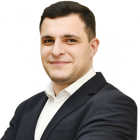

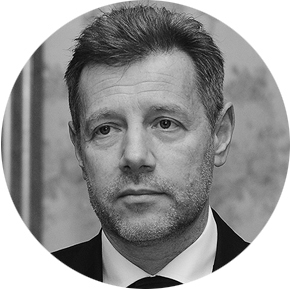

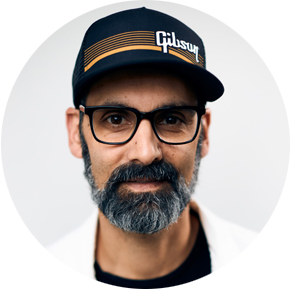
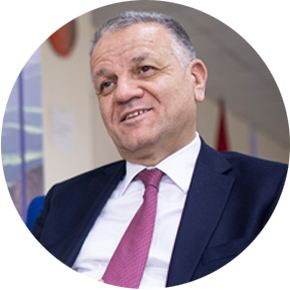
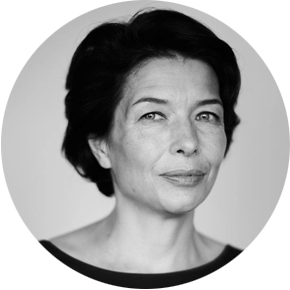





Comments
Dear visitors, You can place your opinion on the material using your Facebook account. Please, be polite and follow our simple rules: you are not allowed to make off - topic comments, place advertisements, use abusive and filthy language. The editorial staff reserves the right to moderate and delete comments in case of breach of the rules.